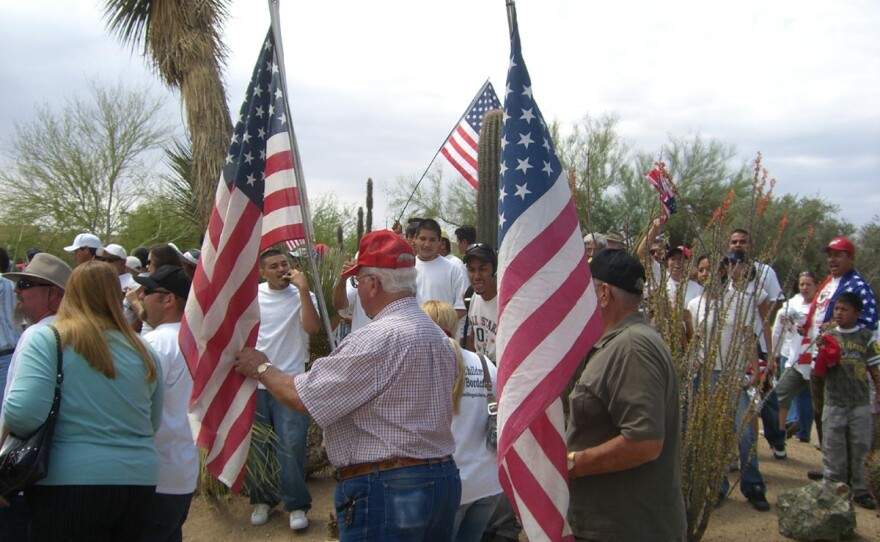Marches for immigration reform and workers rights are scheduled in cities all over the country Wednesday, including Los Angeles, Phoenix, Tucson and Las Vegas.
May 1 is a significant date for the modern immigrant-rights movement.
In March and April of 2006, immigrants took to the streets to march in various American cities in numbers never seen before. They mobilized to protest a bill in the U.S. House of Representatives that would have cracked down on unauthorized immigration.
Those efforts culminated in several cities on May 1, 2006. In some cities, workers skipped work and students walked out of class.
By some estimates, more than a million people turned out to march nationwide.
"What May 1 did was to turn out people all at the same time, all on the same day," said Sylvia Lazos, a law professor at the law school at the University of Nevada Las Vegas who has written about the 2006 marches.
"In terms of history, that moment was the largest civil rights mobilization that America has ever experienced," Lazos said.
Angelica Salas of the Coalition for Humane Immigrant Rights of Los Angeles was involved in some of the very first May day marches in L.A.
Salas said in the past seven years, groups like hers have channeled the energy of those marches towards increasing voter turnout.
"It has taken us a while, but we made good on our claim 'Today we march, tomorrow we vote,'" Salas said. "And in 2012 we voted in the millions, and I think that is one of the reasons that we today are having the discussion on bipartisan immigration legislation."
This year, marchers will respond to immigration reform proposals in Congress, and call for legislation that includes a pathway to citizenship for immigrants in the country illegally.
It is a very different political moment in the immigration debate compared to seven years ago.
Still, organizers around the country say they aren't expecting to see a turnout as big as 2006.







